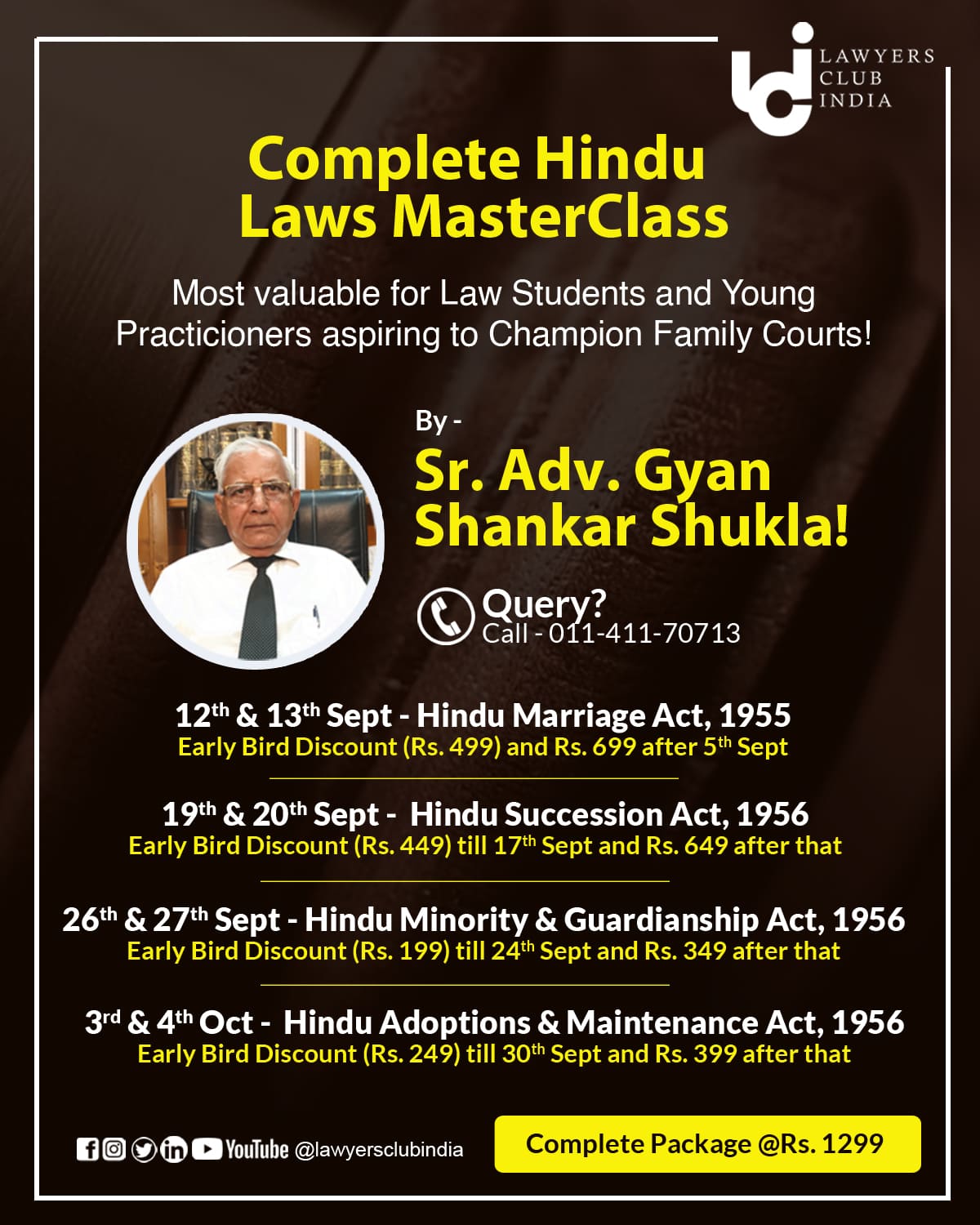Bench:
G.S. Singhvi, Asok Kumar Ganguly
Issue:
Whether kids from void marriages have claim to property?
Facts:
• The first defendant had two wives- the third plaintiff (the first wife) and the fourth defendant (the second wife).
• The first defendant had two children from the first wife, the third plaintiff, namely, the first and second plaintiffs; and another two children from his second wife, the fourth defendant namely, the second and third defendant.
• The plaintiffs (first wife and her two children) had filed a suit for partition and separate possession against the defendants for their 1/4th share each with respect to ancestral property which had been given to the first defendant by way of grant.
• The trial court had ruled in favour of third plaintiff, then the defendants filed an appeal.
• The appellate court again ruled in favour of the 1st wife, but stated that the kids had a share in the property by citing judgement of Sarojammavs Neelamma.
• The High court of Karnataka stated that the 2nd wife's kids had no right in the property while their father was alive, but can demand equal share as co-parceners after his death.
Appellant's contentions:
• The plaintiffs contended that the first defendant had married the fourth defendant while his first marriage was subsisting.
• Therefore, the children born in the said second marriage would not be entitled to any share in the ancestral property of the first defendant as they were not coparceners.
Respondent's contentions:
• The defendants contended that the properties were not ancestral properties at all but were self-acquired properties, except for one property which was ancestral.
• First defendant contended that it was the fourth defendant who was his legally wedded wife, and not the third plaintiff and that the plaintiffs had no right to claim partition.
• He stated that an oral partition had already taken place, so she can not demand partition now after its already done.
Final judgement:
• Relationship between the parents may not be sanctioned by law but the birth of a child in such relationship has to be viewed independently of the relationship of the parents.
• Child born in void marriage is as much entitled to all the rights as compared to children in valid marriages.
• Apex court is pleased to make reference to larger bench and no order as to costs.
• Thus, appeal is dismissed.











